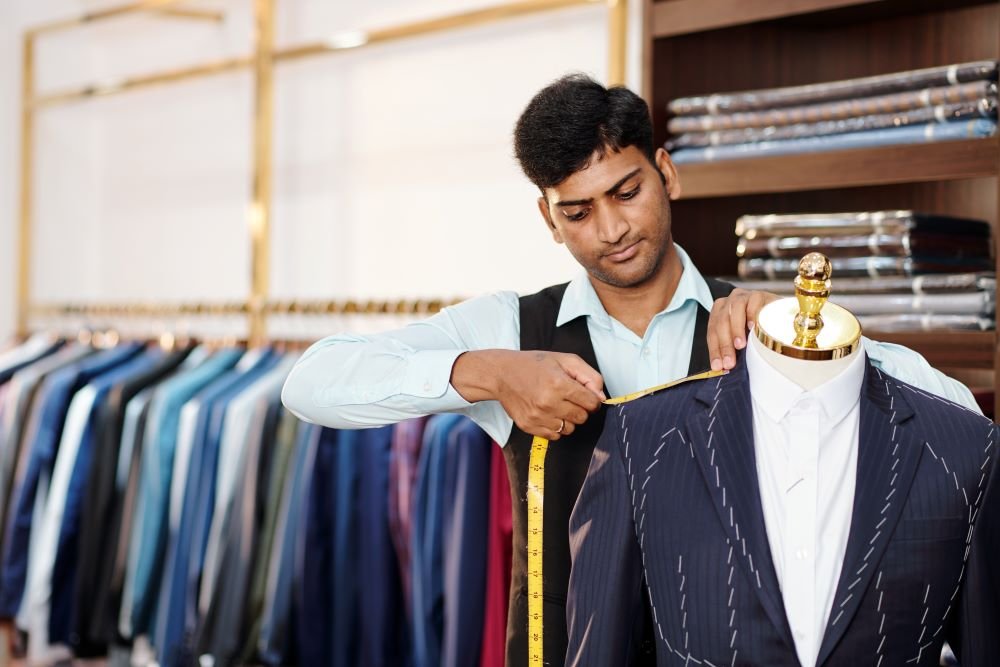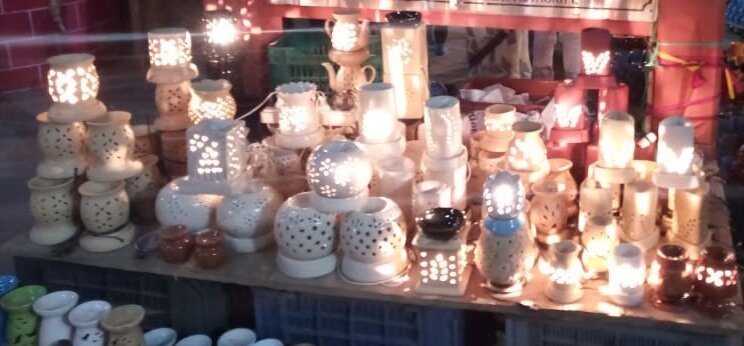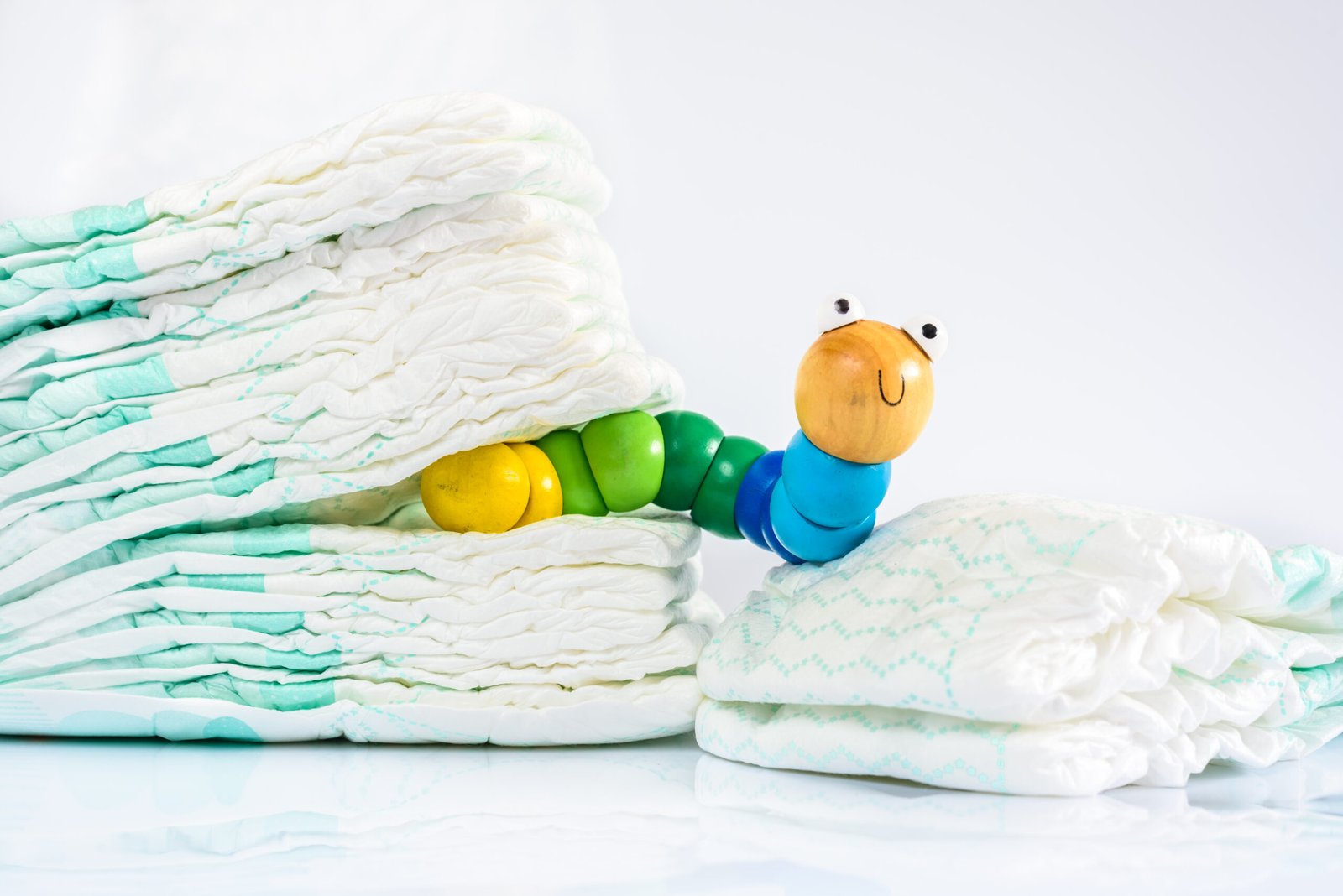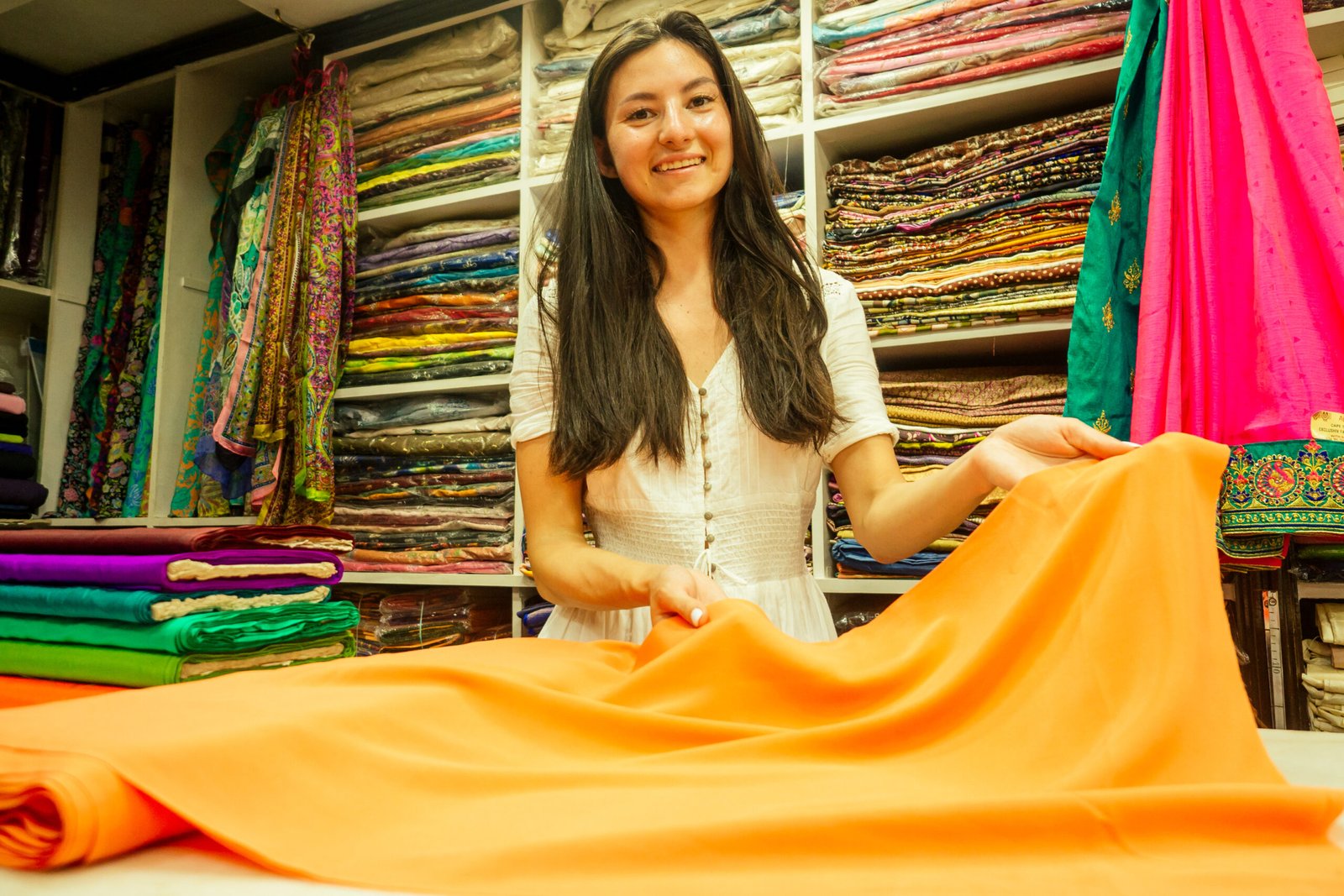Diaper manufacturers in india
India’s diaper market has emerged as a significant player in the global arena, reflecting the country’s dynamic economic and social shifts. While many associate diaper use predominantly with infants, the market has evolved to serve not only babies but also the growing needs of the adult segment, driven by factors such as an aging population and increasing awareness of personal hygiene.
One of the most compelling reasons behind this rapid growth is India’s burgeoning middle class, with more parents seeking convenience in childcare and an increasing number of elderly individuals in need of reliable incontinence solutions. These demographic shifts have made diapers an essential product in households across various income levels. However, beyond these surface-level trends, there’s a deeper story of innovation, sustainability, and strategic business moves in India’s diaper manufacturing industry that is rarely discussed.
At the heart of this market’s evolution lies the rise of eco-consciousness. In recent years, India has seen a surge in demand for environmentally friendly diapers. Many manufacturers have responded by introducing plant-based, biodegradable options—catering to a growing segment of consumers who prioritize sustainability. This shift isn’t just about following trends; it reflects a more profound cultural movement towards ethical consumption, and Indian companies are keen to be at the forefront of this change.
Moreover, while international giants like Procter & Gamble and Unicharm have a strong foothold, India has also birthed its own competitive brands, such as Nobel Hygiene, which are steadily gaining traction not just locally, but globally. These brands often focus on specialized needs, such as high-performance diapers for sensitive skin or economic packs for price-conscious consumers. The combination of local expertise and global manufacturing standards has allowed Indian companies to meet international quality benchmarks while offering competitive pricing.
The Indian diaper manufacturing landscape is much more than just a booming market; it’s a space where innovation meets tradition, and where businesses, big and small, are working towards making everyday products that serve global and local needs. As we delve into the key players, manufacturing processes, and future trends, you’ll discover that sourcing diapers from India offers a unique blend of quality, sustainability, and value that can set your business apart in the global marketplace.
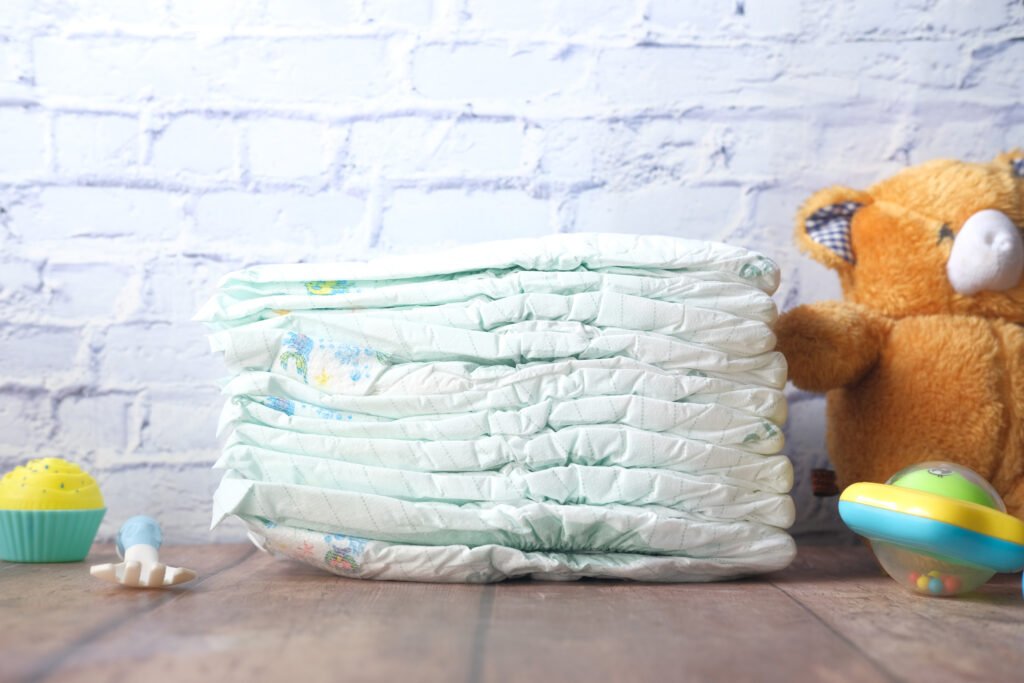
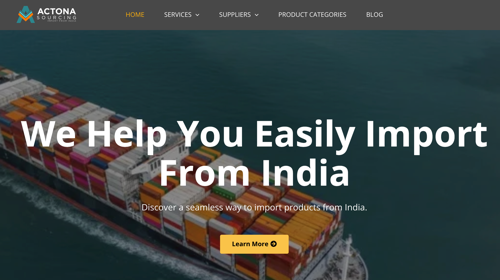
Actona Sourcing- Import Diapers From India
Import In 3 Simple Steps from India. Click above to learn more.
The Growth of the Indian Diaper Market
India’s diaper market is poised for remarkable growth over the next decade. In 2023, the market reached an impressive value of US$ 1.6 billion, and this figure is expected to almost double by 2032, hitting US$ 3.0 billion. This growth trajectory, with a compound annual growth rate (CAGR) of 7%, reflects deeper shifts in the country’s socio-economic fabric. Several key factors are fueling this expansion, including rising personal hygiene awareness, changing family structures, and advancements in diaper technology. As the demand for diapers continues to rise, understanding the market dynamics and trends is crucial for businesses looking to source from India.
Market Size and Growth Projections
India’s diaper market is among the fastest-growing segments in the hygiene product category. The expected growth from US$ 1.6 billion to US$ 3.0 billion by 2032 highlights not only the increasing demand for diapers but also the potential opportunities for businesses to tap into this lucrative market. This steady rise is driven by a blend of demographic changes and evolving consumer behaviors.
One of the most notable trends is the rapid urbanization of India, which has led to a larger working population and increased household income. This shift has resulted in greater demand for convenience products like diapers. As more parents juggle careers with childcare responsibilities, the convenience of disposable diapers has become a necessity rather than a luxury, especially in urban areas.
Another significant factor is the penetration of diaper usage in semi-urban and rural regions. While diaper usage was once largely confined to urban middle-class families, awareness campaigns and improved distribution channels have expanded their reach. As more households gain access to affordable, quality diapers, the market size is set to grow across the country.
Key Drivers of Demand
1. Rising Awareness of Personal Hygiene
One of the most compelling drivers of diaper market growth in India is the increasing focus on personal hygiene. Over the past decade, government initiatives, healthcare programs, and marketing campaigns have promoted the importance of hygiene, especially for infants and the elderly. For instance, the government’s “Swachh Bharat” (Clean India) campaign has played a role in emphasizing hygiene across the nation, indirectly contributing to increased diaper usage in both infant care and adult incontinence management.
Additionally, as parents become more health-conscious, the demand for premium diapers that provide better comfort, leak protection, and skin care benefits has grown. This shift is not limited to baby diapers—adult diapers have seen a similar surge, particularly due to rising awareness around geriatric care.
2. Increasing Geriatric Population
India’s demographic landscape is also shifting towards an aging population, with the number of elderly individuals growing rapidly. This trend is expected to continue in the coming decades, driving demand for adult diapers, which provide incontinence management for the elderly. Adult diapers are becoming more commonplace as part of healthcare routines in both private and public healthcare institutions. This market segment is relatively untapped compared to baby diapers, offering significant growth potential as elderly care becomes a priority for many families.
3. Changing Family Structures and Working Parents
The rise of nuclear families and the increasing number of dual-income households have also contributed to the rising demand for disposable diapers. With both parents working, there’s a growing need for convenience-oriented products that save time and reduce the workload of childcare. Diapers are no longer seen as a discretionary purchase but as an essential item for working families.
Moreover, India’s younger generation of parents is more informed and open to trying innovative products that promise better care for their children. This has led to the growing popularity of products like overnight diapers, plant-based diapers, and premium versions that offer skin-sensitive materials and eco-friendly packaging.
4. Technological Advancements in Diaper Manufacturing
Technological innovations have also played a significant role in boosting the diaper market. Indian manufacturers and global players alike are leveraging advanced technologies to enhance product performance and sustainability. Companies like Nobel Hygiene and Unicharm India are exploring the use of nanotechnology for better absorption, while others are focusing on creating biodegradable and plant-based diapers to cater to environmentally conscious consumers.
Eco-friendly products, in particular, are gaining momentum as more consumers become aware of the environmental impact of disposable diapers. As India shifts towards a greener economy, diaper manufacturers are responding by adopting sustainable practices in both production and packaging. This focus on sustainability is likely to become a major growth driver in the future, as companies innovate to meet the demand for green products.
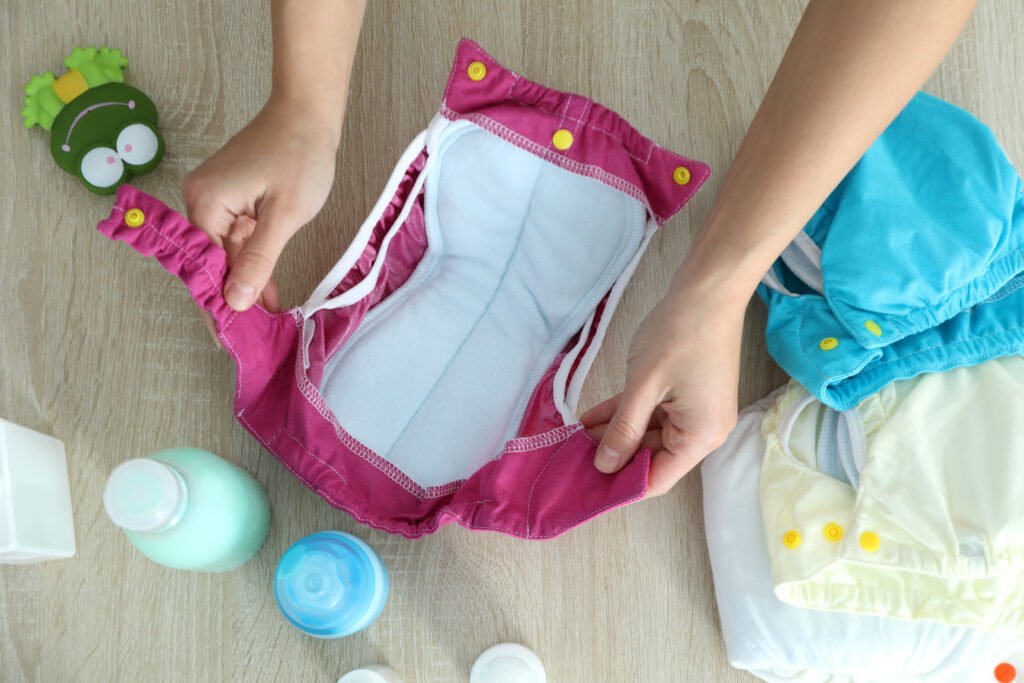
Major Players in the Indian Diaper Market
India’s diaper market is a competitive landscape where both global giants and homegrown brands vie for consumer attention. With a mix of international expertise and local ingenuity, these companies have tailored their strategies to meet the diverse needs of Indian consumers. From premium diaper options to affordable, high-volume products, the industry is seeing a range of offerings that cater to various demographics. Let’s take a closer look at the major players dominating this market and their production capabilities.
Global Players in India
India’s diaper market has attracted some of the world’s biggest names in hygiene products, leveraging their global experience to capture significant market share. These companies bring advanced technologies, robust marketing strategies, and an ability to scale production to meet growing demand.
- Procter & Gamble (Pampers): One of the most recognized names in the diaper industry, Procter & Gamble’s Pampers brand holds a significant share of the Indian market. Pampers has been known for its high-quality diapers with features like extra absorbency, stretchy sides, and soft materials that ensure comfort for infants. The brand is synonymous with innovation and is a favorite among middle and upper-class families.
- Unicharm India (MamyPoko): Unicharm’s MamyPoko brand is another heavyweight in the Indian diaper market. Known for its affordability and superior absorption, MamyPoko Pants are particularly popular among Indian parents. With a focus on convenience, the brand introduced the “pant-style” diaper in India, revolutionizing the market and setting a trend that many local manufacturers have followed.
- Kimberly-Clark India (Huggies): Kimberly-Clark’s Huggies brand is also a key player, especially in the premium diaper segment. Huggies diapers are known for their advanced features like wetness indicators and ultra-soft materials. The brand focuses on providing superior comfort and skin care, making it a trusted choice among parents who prioritize their child’s comfort.
Leading Indian Manufacturers
While global brands dominate a large part of the market, Indian manufacturers are quickly catching up by offering competitive products tailored to local needs. These brands often focus on affordability, catering to price-sensitive consumers while maintaining quality. Additionally, many of these manufacturers are expanding into the export market, boosting India’s global footprint in the diaper industry.
- Nobel Hygiene: One of the leading Indian manufacturers of baby and adult diapers, Nobel Hygiene has made a name for itself with its brand “Teddyy Baby Diapers” and adult incontinence products. The company has focused on addressing the specific needs of Indian consumers, such as affordability, without compromising on quality. Nobel Hygiene also stands out for its adult diaper range, which caters to the growing elderly population in India.
- Snuggy (by Nobel Hygiene): Another brand under Nobel Hygiene, Snuggy has become popular for offering high-quality baby diapers at affordable prices. The brand positions itself as an accessible alternative to international brands, targeting the vast majority of Indian consumers who are looking for value-for-money products.
- Wipro Baby Soft: Wipro, a well-known Indian conglomerate, entered the diaper market with its Baby Soft brand. The company focuses on offering budget-friendly diapers that cater to lower-income families while maintaining decent quality standards.
Product Innovations and Trends
Both global and local players in the Indian diaper market are constantly innovating to meet changing consumer demands. The focus has shifted towards more sustainable and technology-driven products that not only meet hygiene standards but also align with the environmental concerns of modern consumers. Some of the key trends in product innovation include:
- Eco-friendly Diapers: Many companies are now offering biodegradable and plant-based diapers that decompose more easily, addressing the growing concerns over disposable diapers’ environmental impact.
- Smart Diapers: Some brands have started experimenting with “smart diapers” that monitor a baby’s hydration levels or notify parents when a diaper change is needed. These high-tech products are gaining traction, especially among tech-savvy parents.
- Sustainable Packaging: Sustainability is not just about the diapers themselves; companies are also focusing on reducing the environmental footprint of their packaging. More manufacturers are moving towards recyclable or compostable packaging materials.
Key Product Innovations Include:
- Pant-style diapers: Introduced by Unicharm’s MamyPoko, this style has become incredibly popular for its ease of use.
- Plant-based materials: Companies like Pampers and Nobel Hygiene are integrating biodegradable, plant-based materials to appeal to eco-conscious consumers.
- Smart diaper technology: Innovative features that track baby health or remind parents of diaper changes, aimed at tech-savvy customers.
India’s diaper market is clearly a space of rapid innovation and competition, with both international giants and local manufacturers striving to meet the unique needs of the Indian consumer. As the demand for sustainable, high-quality, and affordable diapers continues to rise, these players are well-positioned to lead the charge in shaping the future of the industry.
Choosing the Right Diaper Manufacturer in India: A Guide for Sourcing
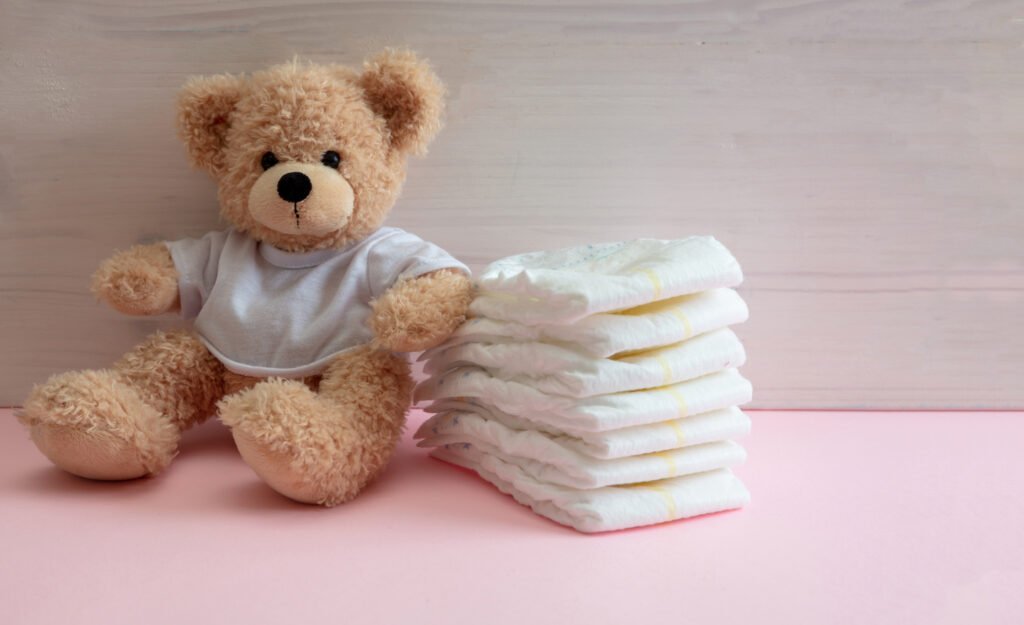
For online sellers and businesses aiming to source diapers from India, the potential for profit and growth is enormous. The country’s diaper market is not only expanding, but it’s also becoming a key hub for global manufacturers and exporters due to its ability to produce high-quality products at competitive prices. However, the process of sourcing diapers from India requires careful consideration, particularly in terms of vetting suppliers and navigating import regulations. In this section, we’ll provide practical tips to help you source effectively and efficiently.
Vetting Indian Diaper Manufacturers
One of the most crucial steps in the sourcing process is finding reliable manufacturers. In India, the diaper industry is varied, with both large-scale global players and smaller local manufacturers. Ensuring that you choose the right partner can make or break your sourcing strategy, so here are some key factors to consider when vetting suppliers:
1. Quality Assurance
Quality is paramount when sourcing hygiene products like diapers. To ensure the product meets both your expectations and international standards, it’s important to ask the following:
- ISO and GMP Certifications: Look for manufacturers that are ISO-certified, particularly for standards related to hygiene and quality control (such as ISO 9001). Good Manufacturing Practice (GMP) certifications also signal that the factory adheres to stringent production standards.
- Material Sourcing: Inquire about the source of materials used in the diapers. Many consumers now prefer eco-friendly options, so make sure the manufacturer has access to high-quality, sustainable materials if that is a priority for your brand.
- Testing and Compliance: Ensure the manufacturer follows rigorous testing protocols for absorbency, skin sensitivity, and durability. Ask for test results and compliance with relevant safety standards, particularly if your market is outside of India.
2. Production Capacity
Understanding a manufacturer’s production capacity is vital to ensure they can meet your business’s demand, both in the short and long term. Here’s what to assess:
- Manufacturing Scale: Determine the size and capacity of the factory. Can they scale production quickly if your demand grows? It’s also a good idea to visit the factory in person, if possible, or request a virtual tour to get a better sense of their operations.
- Lead Times: Ask about typical lead times for production and shipping. Ensure that they can meet your deadlines, particularly if you plan to sell during peak seasons.
- Flexibility and Customization: Some manufacturers specialize in generic, bulk diaper production, while others can offer customized packaging or product variations (such as plant-based diapers or specialty sizes). Make sure the manufacturer you choose aligns with your product vision.
3. Certifications and Compliance
Indian manufacturers catering to international markets are often required to meet stringent regulatory standards. Some key certifications to look for include:
- Bureau of Indian Standards (BIS): This certification indicates that the manufacturer adheres to India’s national standards for product quality and safety.
- Export Certifications: If you’re importing to Europe or North America, check that the manufacturer meets EU or FDA requirements, particularly around product safety, packaging, and labeling.
- Sustainability and Ethical Practices: Many international consumers prioritize ethical sourcing. Check whether the manufacturer adheres to sustainable production practices, uses eco-friendly materials, and meets labor standards that prevent exploitation.
Navigating Import Regulations
Importing diapers from India involves a specific set of regulations that can vary depending on your country. Understanding these regulations upfront can help avoid delays, unexpected costs, and compliance issues. Here’s a basic guide to navigate the import/export process:
1. Tariffs and Duties
Every country has different tariffs and import duties on hygiene products like diapers. Some countries may impose higher tariffs on certain materials or finished products, especially if they’re not part of a free trade agreement with India. It’s essential to:
- Check HS Codes: Identify the correct Harmonized System (HS) code for diapers. This code will determine the tariffs and duties applied when importing into your country.
- Consult with a Customs Broker: A customs broker can help you understand the specific duties, taxes, and fees you’ll incur when importing diapers into your target market. They can also assist in the paperwork required for customs clearance.
2. Regulatory Standards and Compliance
Different countries have different regulatory standards when it comes to hygiene products like diapers. Before importing, ensure that the products meet your country’s standards for:
- Health and Safety: Many countries have strict regulations on the materials used in diapers, particularly for products that come in contact with skin. Ensure the diapers comply with regulations related to toxic chemicals, allergens, and environmental impact.
- Labeling Requirements: Diapers sold in many countries must meet specific labeling requirements, including language, country of origin, and material composition. Be sure your Indian supplier is able to comply with these regulations, or be prepared to handle labeling after import.
3. Shipping and Logistics
Efficient logistics are crucial for maintaining profitability when sourcing from overseas. Here are some considerations:
- Freight Options: Choose between air and sea freight depending on your budget, timelines, and the volume of diapers you are importing. Air freight is faster but more expensive, while sea freight is more cost-effective for large quantities.
- Customs Clearance: Work with a logistics provider who is experienced in handling diaper shipments, as customs processes for hygiene products can sometimes be more stringent than other goods.
- Incoterms: Make sure you and your supplier agree on Incoterms (International Commercial Terms) to clearly define responsibilities regarding shipping, insurance, and delivery.
Supplier Database: IndiaDirectSourcing’s Curated List
Sourcing diapers from India can be a complex process, but IndiaDirectSourcing simplifies it by offering a curated list of verified suppliers. Our database includes:
- Reputable Manufacturers: All listed manufacturers are vetted for quality, certifications, and production capabilities, ensuring you have reliable options for sourcing.
- Comprehensive Information: Each supplier profile includes details on certifications, production capacity, and customization options, making it easy to find a partner that meets your specific requirements.
- Supplier Reviews: Benefit from real-world feedback from other businesses that have worked with these manufacturers, allowing you to make an informed decision.
At IndiaDirectSourcing, we are committed to helping online sellers and businesses streamline their sourcing journey. Whether you’re looking for premium products or value-for-money options, our supplier database can connect you with the right manufacturers to meet your business needs.
Conclusion: India’s Growing Role in Global Diaper Manufacturing
As India’s diaper market continues to evolve, it is clear that the country is on a trajectory to become a global leader in diaper manufacturing. With a growing middle class, increasing awareness of hygiene, and rising demand for both baby and adult diapers, the opportunities in this sector are vast. What sets India apart is its unique blend of cost-efficient production, advanced technology, and a deepening focus on sustainable practices, making it an attractive destination for businesses around the world looking to source high-quality diapers.
Sustainability is one of the most significant trends shaping the future of India’s diaper market. As global consumers become more environmentally conscious, Indian manufacturers are responding by embracing eco-friendly production methods and materials. Whether it’s plant-based diapers, biodegradable components, or sustainable packaging, these innovations position Indian manufacturers to meet the growing demand for green products. Companies that prioritize these values will not only capture a larger share of the domestic market but also appeal to international consumers who are increasingly choosing products that align with their environmental values.
In addition to sustainability, technological advancements are enhancing the quality, comfort, and performance of diapers produced in India. From smart diaper technology to better absorption materials, these innovations cater to a wide range of consumer needs. This combination of affordability and cutting-edge technology makes India a compelling choice for businesses looking to offer premium diapers at competitive prices.
Opportunities for Growth
For both domestic and international players, the opportunities in the Indian diaper market are immense. Indian manufacturers are not only equipped to meet growing local demand but also to expand their global footprint. With India’s strategic focus on export-driven growth, the country is poised to become a key player in global diaper supply chains. As noted in the article from IMARC Group, “Key companies include Procter & Gamble, Unicharm India, Kimberly-Clark India, and Nobel Hygiene,” reflecting India’s increasing role in both domestic and international markets.
The potential for growth in the adult diaper segment, in particular, should not be overlooked. As India’s population ages, the demand for adult diapers is expected to rise significantly, presenting a valuable niche for businesses to explore. The increasing integration of technology and customization options further enhances the appeal for both baby and adult diaper products.




